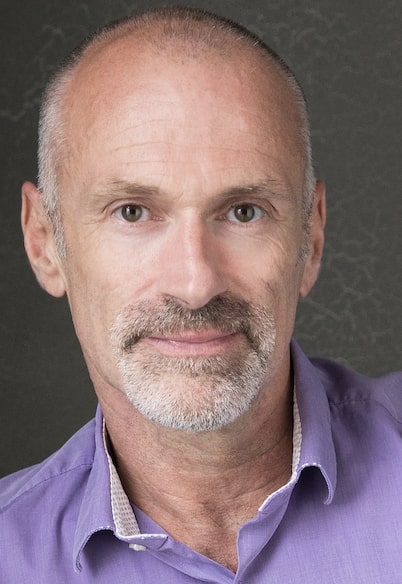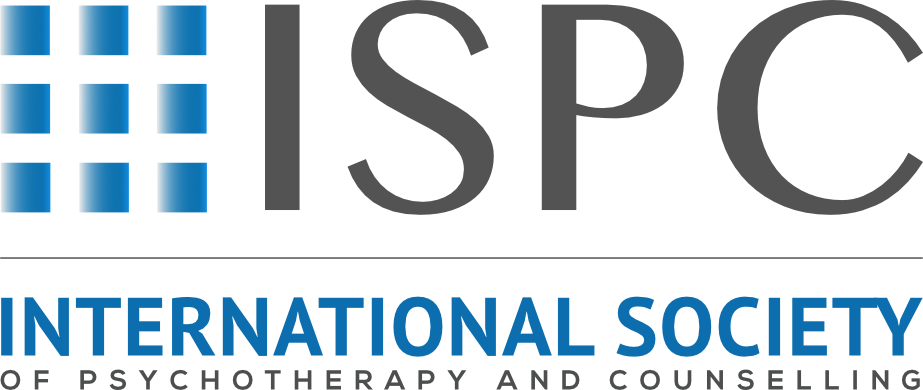What is the difference between a psychotherapist, psychiatrist, psychologist and counsellor?
A psychotherapist provides ‘talk therapy’ of one sort or another, although some therapies might feel like there is not much actual talking at all – just forms and exercises. (I once attended a world-class CBT course but was horrified that they didn’t want to actually talk with me). There are two main kinds of psychotherapy: the directive approaches, and non-directive (or person-centred) psychotherapy. A directive clinician will play the role of expert. They will ask questions so they can classify you as X or Y, and will then tell you what to do. They will say to you what they say to everyone who they have placed in the same category, using the medical metaphor of ‘illness’ to label your state and to give them confidence and gravitas. They will encourage your dependence on their expertness.
The non-directive (person-centred, or Rogerian) therapist will help in a very different way, by providing a non-judgmental, open-ended and empathic attitude of understanding for your instincts and inner voice. They will do this from within your own frame of reference, rather than impose their own (e.g by taking control of the conversation). They will allow you, the client to decide which direction is most important, which elements of your experience are most troubling to you. They will not judge the things that you say or do, because these are not yet sufficiently aligned with your instincts and inner voice. They will treat your personal agency with the utmost respect: if you can feel more open and confident amid your own experience – your thoughts and feelings – you can decide your own way forward. Indeed a person-centred therapist would say that such confidence is the same thing as well-being. They will help you to have more faith in your instincts and less faith in your ideas about yourself. This allows you to reorganize your personality so that it is more in line with your temperament, and less pressured by conditioned responses, in a way that leaves you truer to yourself. And here’s the kicker: non-directive therapy is as effective as any other, yet without the loss of personal agency. All those exams and certificates in this or that ‘illness’ and its related ‘treatment’ don’t actually provide a better end result. The work is done by the therapeutic relationship, not by the crystal-waving or form-filling. This was Carl Rogers’ great insight, based on analysis of thousands of hours of therapy: given the right therapeutic conditions the client’s personality will experience the growth that has hitherto been frustrated.
A counsellor is, if person-centred, the same as a psychotherapist. Counselling is simply another word for non-directive / client-centred or person-centred psychotherapy. In fact the term counselling was only invented because at that time psychologists were not legally permitted to call themselves psychotherapists. In person-centred terms there is no meaningful distinction between a counsellor, therapist or coach. It is all the same skill set, and non-directive therapy / counselling is based on the idea of personal growth rather than on an engineering-style deficit between the patient’s symptoms and whatever is deemed objectively ‘normal’. So perhaps it is best to let you, the client decide what to call me: do you want to get better? Call me a therapist. Do you want to feel better? Call me a counsellor. Or do you want to do better? Call me a coach. Call me whatever you want. I will leave you free to find your own words.
It should be noted that there are some people who call themselves counsellors but don’t provide non-directive therapy. These people should really call themselves something else. They are not the heirs to Carl Rogers and the person-centred approach to psychotherapy.
A psychiatrist is a medical doctor who describes your state as some kind of disease so they can prescribe medication or other do something else to you (what they would call ‘treatment’). Like many therapists, the psychiatrist is directive, i.e. not person-centred. The psychiatrist will act as if she is the expert on you, and insist that you go along with this. For your own good of course. You are a ‘case’, in which your suffering is seen as a deficit from what is considered objectively normal in the average person. Because you now officially have an illness, and illnesses can be treated, is not necessary to understand you as a person, or help you to find a more comfortable perspective on your own experience. She will impose her own frame of reference on top of yours, which will risk you losing faith in your own sense of agency. Like an engineer, she is trying to work out what needs to be fixed and then she will fix you, declaring you healed, or at least ‘treated’. And you can become very dependant on this engineer to keep you fixed. But if the medications put a smile on your face and get you back into the factory, she is content. Next please!
A clinical psychologist supports the psychiatrist. He will adopt the same, directive, engineering-like ‘assess and treat’ approach as the psychiatrist. You will be given forms to complete, and as a result might well not feel heard. Like the psychiatrist, the clinical psychologist will act as if he is the expert on you, and insist that you go along with this. Like the psychiatrist he is ‘directive’ in terms of insisting you play the game of pretending he is the expert on you. Like the psychiatrist, he has studied hard for years, and needs you to acknowledge his superiority by surrendering your own agency to him. Like all directive clinicians he will lay expectations on you: fill out this checklist, do the exercises I show you, do your homework, sign this form saying you won’t try to kill yourself. Your agency will therefore not be nurtured, but your dependence will.
(A clinical psychologist is, in principle, a kind of psychologist. And psychology is a science, or at least it applies rigorous scientific and statistical methodologies.
The problem is that it very often applies such precise measurement to concepts that are very fuzzy indeed. And if we don’t know what we are measuring, what conclusions could we possibly draw? We often end up with results precise to 4 decimal places which describe constructs that are way too vague. Or arguing about the gaps and overlaps of competing concepts that are very likely the same thing. So how useful will this clinician be to you, the client, if they would prefer to talk about their fuzzy universal ideas about the average person, rather than the harsh realities of your own lived experience. I would suggest a hard truth is usually the best foundation upon which to build. Clinical psychology, like the rest of the medicalised sector, is rationalist and manual-based, imposing a standardised, impersonal ‘if-this-then-that’ frame or reference and commonality of approach that can make the client feel they are being fed through a sausage machine. Good talking therapy, on the other hand, is mainly empirical, driven by a here and now based, ‘if-this-then-what’ attitude of understanding rather than categorisation. This models the openness that signifies personal growth. This capacity to accept my present moment and to ask how I want the next moment to unfold is the mechanism of wellbeing. I sometimes describe a psychologist as the scientist who tends to be precisely wrong about the person, and a therapist as the artist who tends to be sufficiently right about the person.)
…
Some Background
One major reason why psychotherapy training takes longer than ‘counselling’ training is because many courses have inherited the strange idea that a trainee therapist requires hundreds of hours of personal therapy, many times more therapy than is required by over 90% of clients! (One might wonder why someone so messed up would be confident enough to embark on a new career). This bizarre requirement is a hangover from the ideas of Freud, over 100 years ago. This is related to another regrettable anachronism, snobbery: many therapists are still very tied to the idea that more scout badges = better therapy. They can’t imagine engaging with a client as equals. This is closely linked to the therapist’s fragile ego: a need to hide behind certificates and the rather outrageous conceit that they can in some way be an expert on you and your world. It so much easier for them to seek to classify you as… whatever, than to try to actually understand you. Rogers warned that the major motive for many psychiatrists and therapists is often really just to prove how bright they are. And they will use you, the vulnerable patient, in this selfish game.
It has been very well proven over a very long time that such ‘expert’ knowledge is based on flawed science. Diagnostic categories are increasingly acknowledged as not scientifically valid, so any related scout badges cannot automatically be regarded as helpful. It is also very well established that such expertise-driven, directive (‘therapist-knows-best’) approaches are no more effective than relationship-driven approaches. And the directive approaches run a much higher risk of inciting complaints and grievances: the therapist didn’t listen to me, the therapist misdiagnosed me, the treatment didn’t work…
…
The Politics of Therapy
In many countries the term psychotherapist is a protected title, allowing those who hold such an exalted status to reap the financial rewards of being on the right side of what the economists call a ‘barrier to entry’ in the market. But who is the best person to decide who is a good clinician? The UK, in accordance with its tradition classical British liberalism (in which the best person to decide what is best for you is…. you), has long held that the best judge the consumer. A medical doctor who has passed lots of exams might well be better than one who hasn’t, but therapy/counselling does not work like this. It is a verified scientific fact that therapy/counselling does not work like this. This is because the relationship is more therapeutic than the interventions, and all their related scout badges. So, do we need self-appointed, self-serving rent-seekers to declare who is, and who isn’t, a therapist? I say no.
You might hear the new term ‘psychotherapeutic counsellor‘ (as if there is any other kind!), which has emerged as an expression of the directive therapists attempts to place themselves above the non-directive ones. This might well lead to the creation of a new professional body to represent the interests of non-directive psychotherapists, if existing bodies like UKPC and BACP cannot demonstrate a sound understanding of the person-centred/ non-directive modality, and a willingness to act in the interests of all psychotherapists, including the non-directive ones.
This issue extends beyond the profession itself. If it truly takes 4 years to train a psychotherapist then very few will be able to afford it. We will never have many therapists who are not financially supported by The Main Breadwinner: i.e. the industry will become even more dominated by the wives of rich men. Perhaps other voices are also needed. Let me rephrase that. Other voices are definitely needed.
My own opinion is that there are far too many people competing in this sector. Very few can actually make a living at it, yet the universities continue to create vast numbers of under-utilised therapists. I would prefer fewer, better therapists (who were each busy enough to be able to charge less!) but this cannot be at the expense of non-directive, relational approaches which are just as effective as any other. And the best person to decide who is a good clinician will always be you, the client.
…

Written by Tim Harvard-Sweeting – Tim is a Member of the ISPC and BACP with many years experience in helping those in need of talking therapy.
If you would like to book an appointment with Tim please see Tim’s Therapist Listing, or go directly to his website.















